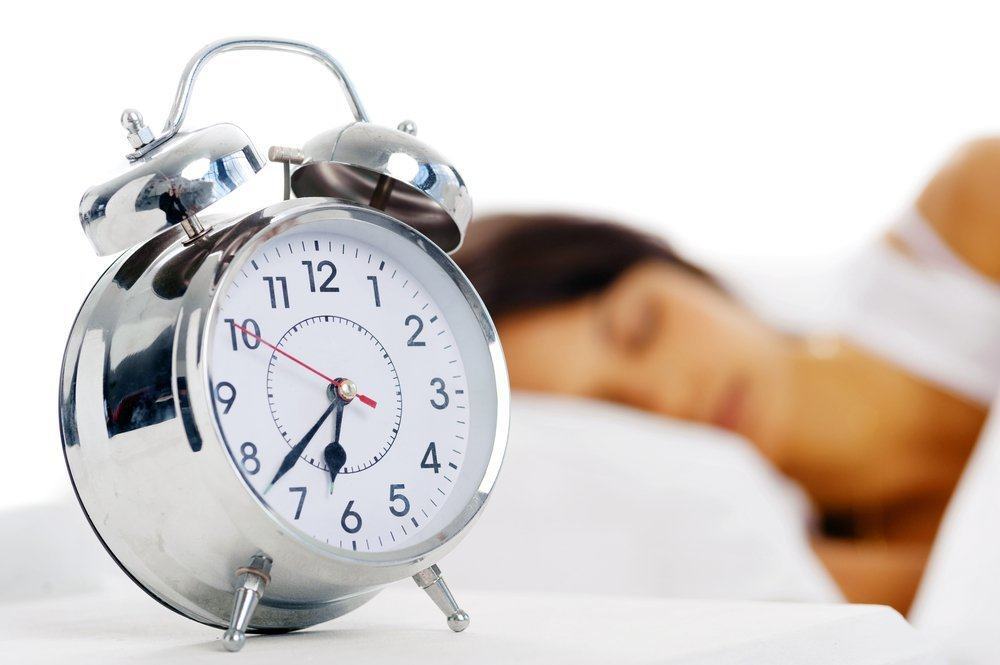Contents:
- Medical Video: How Smartphones Affect Your Sleep
- What is a change in sleep pattern?
- Changes in sleep patterns occur because of the existence of 'debt' sleep
- Impact of changes in sleep patterns on health
- 1. Disorders of hormone secretion
- 2. Trigger obesity
- 3. Increases cardiovascular risk
- 4. Diabetes mellitus
Medical Video: How Smartphones Affect Your Sleep
Sleep patterns are our habitual pattern of resting our bodies by falling asleep. This includes hours of sleep and how long we fall asleep. This is the reason why we, under normal circumstances, tend to be active during the day and fall asleep at night until morning. Normal sleep patterns in adults take approximately 7 hours at night. Lack of sleep or overtime is the main cause of changes in sleep patterns.
What is a change in sleep pattern?
Changes in sleep patterns are changes in a person's habit of falling asleep, within 24 hours a day, including sleepless nights and naps. Changes in sleep patterns are closely related to changes in the cycle of sleep and wakefulness. When a person experiences a change in schedule and the amount of time to fall asleep and wake up, that's when changes in sleep patterns occur.
Changes in sleep patterns occur because of the existence of 'debt' sleep
Changes in sleep patterns usually begin with a change in waking time. This can be caused by factors such as age, activity, activities, exercise habits, stress, and various environmental conditions. Reduced time to fall asleep (sleep loss) is the thing that most often triggers changes in sleep patterns. The difference in sleep from a person's normal sleep time will be "debt" (sleep debt) which can accumulate. The debt must be paid for with the addition of sleep time, whenever it is.
Lost sleep time is usually paid for by bedtime at other times that we usually do not fall asleep. Well, that's when changes in sleep patterns occur. Changes in sleep patterns generally cause a person to sleep during the day, sleep early or late, even sleep for a longer time. But some people fall asleep longer on weekends to replace the lack of sleep during weekdays, and this is known as the term social jetlag.
In contrast to lack of sleep, changes in sleep patterns can also be caused by lack of sleep. Both can reduce mental and physical performance due to lack of sleep. Directly, someone with a change in sleep has a risk or has experienced the effects of lack of sleep.
Impact of changes in sleep patterns on health
Changes in sleep time are the result of the body's mechanism to balance one's rest time, even though the impact is that someone falls asleep at an abnormal time (afternoon or morning) due to 'damage' to a biological clock. Here are some health problems experienced by someone with changes in sleep patterns:
1. Disorders of hormone secretion
When we sleep, it's time for the body to produce various important hormones for the body's metabolic functions. For example the hormone cortisol which functions so that we stay awake during the day, growth hormones that help regulate the growth of muscle mass, reproductive hormones; and FSH (Follicle Stimulating Hormone) and LH (Luteinizing hormone) which regulates the function of the reproductive organs and development during puberty. Lack of sleep at night will interfere with the secretions and performance of these hormones, even though it has been added to the time for napping.
2. Trigger obesity
This is not only due to lack of sleep. Changes in sleep patterns that cause a person to lack sleep at night trigger the secretion of the hormone that causes obesity. This hormone triggers hunger during the day and causes someone to want to eat more food. After the desire to eat is fulfilled, it is likely that the individual starts to get sleepy due to lack of sleep at night. The result is a lack of activity during the day and unused energy stored as fat.
Disorders of other hormone secretions can also cause indirect obesity, including growth hormone. Too little growth hormone growth will reduce muscle mass. The less proportion of muscle mass, the greater the proportion of fat. Research by Yu and colleagues show that adult and elderly men with changes in sleep patterns or awake habits at night run the risk of losing muscle mass (sarcopenia) equal to four times that of individuals with normal sleep patterns. This tendency causes a person to become more obese with age.
3. Increases cardiovascular risk
It may be common knowledge if lack of sleep can cause a disturbance in heart performance. However the latest research by Dr. Patricia Wong shows that changes in sleep patterns also increase blood fat levels. Changes in sleep patterns will cause a lack of rest time at night, as a result we change at other times. However, sleeping at an abnormal time will disrupt the body's metabolism during the day so that blood fat levels tend to increase. This will increase the risk of blood vessel blockage and high blood pressure. So that someone who experiences changes in sleep patterns will be more susceptible to various cardiovascular diseases.
4. Diabetes mellitus
Abnormal sleep time due to changes in sleep patterns, especially on weekends, can also increase blood sugar levels. Components of balancing blood sugar levels are also produced less by the body when a person sleeps during the day to evening. Research by Yu and colleagues also shows that individual changes in sleep patterns cause the risk of developing diabetes mellitus to increase by about 1.7 times higher even in the male group increasing the risk by about 3 times to experience symptoms of diabetes.
READ ALSO:
- How to Regulate a Healthy Sleep Cycle If You Don't Have Enough Time
- Too Long Napping Triggers Heart Disease and Diabetes
- Pros and Cons of Various Sleep Positions












